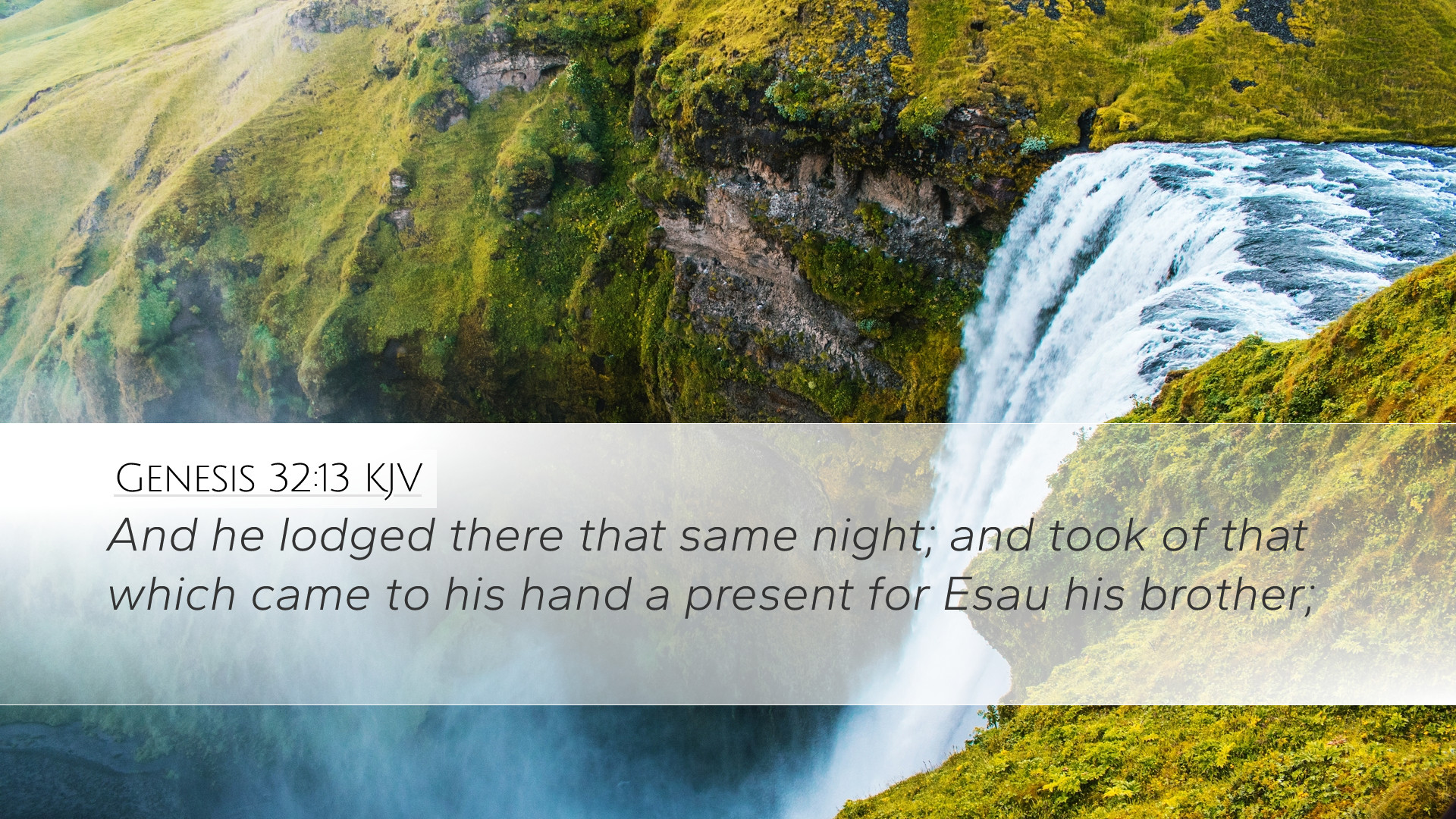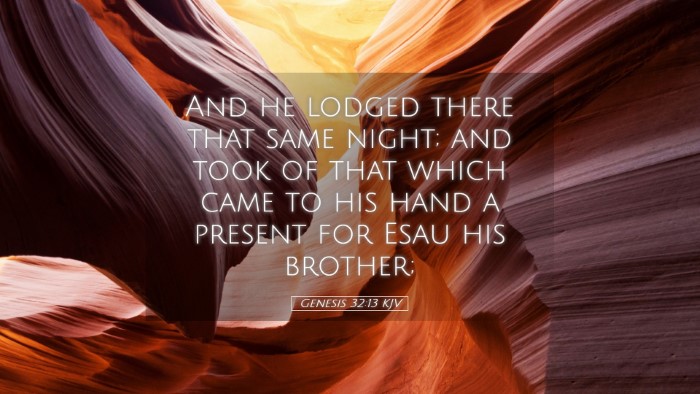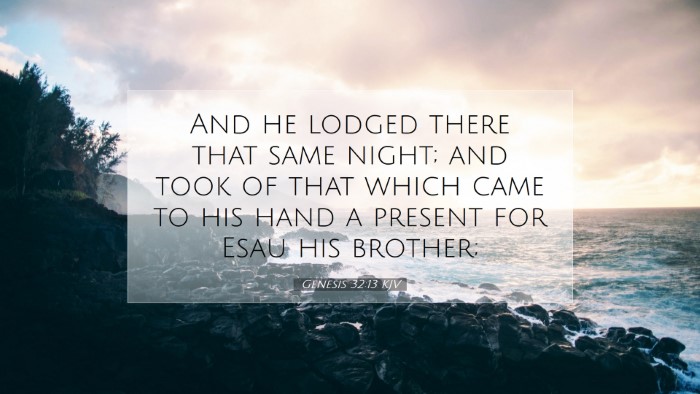Commentary on Genesis 32:13
Genesis 32:13 states, "And he lodged there that same night; and took of that which came to his hand a present for Esau his brother." This verse falls within the context of Jacob's return to his homeland after years in exile, and it reflects his complex relationship with his brother Esau. The following commentary synthesizes insights from respected public domain commentators including Matthew Henry, Adam Clarke, and Albert Barnes.
Contextual Background
Jacob, having fled from his brother Esau due to fear of retribution after deceiving him, is en route back to the land of Canaan. His return signifies not just a physical journey but a spiritual and relational reconciliation. This moment is characterized by tension, fear, and a profound need for divine intervention.
The Act of Lodging
According to Matthew Henry, the act of lodging signifies Jacob’s need for rest and reflection after a long journey. Jacob’s choice to stop and prepare is emblematic of a deeper spiritual preparation. He finds himself at a critical juncture where he must confront the past, and this necessitates a moment of stillness.
Key Insights:
- Rest before Action: Just as Jacob rested, believers need to take time for contemplation and prayer before important decisions.
- Preparing the Heart: The act of lodging indicates a time to prepare one’s heart for reconciliation and confrontation.
The Present for Esau
The “present” Jacob prepares for Esau consists of many gifts, as noted by Albert Barnes. This act of generosity reflects Jacob’s desire to placate Esau’s anger and to express love and humility. It underscores the principle of seeking favor through acts of kindness.
Key Insights:
- Acts of Reconciliation: Genuine attempts to mend relationships often require tangible gestures of goodwill.
- Humility in Approach: Jacob's approach illustrates the humility necessary in seeking forgiveness, reminding believers to put aside pride.
Theological Implications
Adam Clarke comments on the broader theological implications of this text, emphasizing the nature of divine grace. Jacob's actions represent an appeal to God's mercy and a recognition of his own unworthiness. The gifts can be seen as a token of his approach to Esau, indicating that he is aware of his past sins and is making reparations.
Key Insights:
- Understanding Grace: The willingness to offer a gift parallels our own need to approach God with humility and acknowledgment of grace.
- Divine Sovereignty: This narrative stresses that while Jacob takes initiative, it is God who directs the outcome of our endeavors.
Applications for Today
This passage carries significant implications for readers today:
Key Applications:
- Importance of Preparation: Take time to prepare spiritually and mentally before confronting difficult situations.
- Generosity and Reconciliation: Understand the role of generosity as a means of re-establishing bonds with those whom we have wronged.
- Seek Divine Guidance: Like Jacob, Christians are encouraged to seek God's guidance through prayer before taking significant steps in life.
- Embrace Change: Challenge oneself to reflect on past behaviors and be open to changing one’s approach in relationships.
Conclusion
Genesis 32:13 is rich with insights into preparing for reconciliation, understanding the need for humility, and recognizing God's sovereignty in our dealings. It serves as a reminder to practitioners of faith that genuine relationships are built on the foundations of humility, grace, and proactive peace-making. As we reflect on Jacob’s journey, let us emulate his willingness to confront his past and seek reconciliation with our ‘Esau’—those with whom we might be estranged.


